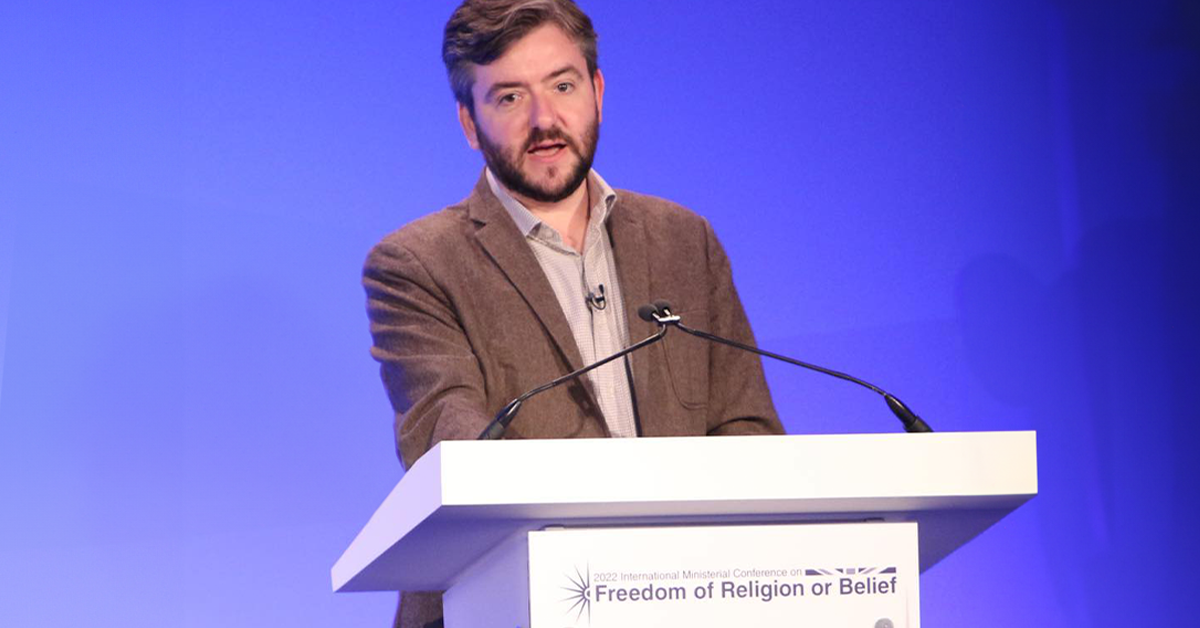
Human rights, democracy, and the rule of law are indispensable values not just for every humanist but for all who believe in a just and peaceful world. They offer the only means we have for every individual in a diverse society to have the hope of an equal right to dignity, freedom, and the chance to flourish and be happy in a secure and tolerant environment.
A growing number of groups and individuals oppose these values. Whether white Christian nationalist, authoritarian, or Islamist, they want to overturn law-based democratic systems and limit the human rights of others. Any society committed to maintaining human rights and democracy, needs to take action to stem these extremist ambitions.
Accepting that it is absolutely necessary to challenge extremism and protect democratic values, the rule of law, and the welfare of citizens, the question becomes simply this: how do you define it? In advance of today’s government definition of extremism, human rights groups (especially those of us that had seen early drafts and reports) had been raising concerns.
The best place with any definition like this involves rooting it in human rights, and I was pleasantly surprised to see the Government’s new definition proceeds on just such a basis:
Extremism is the promotion or advancement of an ideology based on violence, hatred or intolerance, that aims to:
- negate or destroy the fundamental rights and freedoms of others; or
- undermine, overturn or replace the UK’s system of liberal parliamentary democracy and democratic rights; or
- intentionally create a permissive environment for others to achieve the results in (1) or (2).
Frankly, reading this, many in the human rights sector will be relieved – if only partly. It is a much better definition than we had been led to expect it would be. By premising any definition of extremism on ‘violence, hatred, and intolerance’, this should mean that legitimate forms of political expression and campaigning are excluded.
Yet with trust in politicians at an all-time low, sceptics are right to insist on an even tighter definition, as Humanists UK will be doing in the coming days and weeks.
The current government in its rhetoric has been quick to apply the label of ‘extremist’ to climate protesters, pro-Palestinian groups, and anti-monarchy campaigners. These are all groups that have a legitimate political opinions to share, whose ability to participate fully in our democratic debate cannot simply be switched off like a light switch by cavalier ministers chasing headlines or political quick fixes.
Like the Nolan principles for conduct in public life, an official definition of extremism, once attempted, needs to be something that all parties can accept and embrace into the constitutional architecture of how this country runs. It is a task of such importance that it must rise above the current political debate of the day, and be immune from politicians who find themselves tempted to weaponise it against causes they dislike.
The virtues of tolerance
Personally, I was heartened to see the emphasis on tolerance in the definition – and I think this is something we can build on in a tighter draft (either very soon, or possibly under a new government).
‘Tolerance’ gets a bad rap these days: to many it sounds insufficient, or grudging, or insincere. Yet it remains one of the most underrated and most important virtues of all. It is the value which most underpins our most important freedoms: of thought, of choice, of expression.
Love and acceptance are some of life’s greatest joys if you have them to give, but we can’t always do this. In a society of diverse views and opinions, including many which you will fundamentally, deeply, and passionately reject – be they political, religious, or about how someone chooses to live their life – tolerance is the superior, more practical virtue. And it is essential to make our society run peacefully and in the interests of the rights and freedoms of every human being.
Defending tolerance must be at the heart of any project to challenge extremism. As the humanist Karl Popper – a patron of Humanists UK in his lifetime – wrote:
‘If we are not prepared to defend a tolerant society against the onslaught of the intolerant, then the tolerant will be destroyed, and tolerance with them.’
Yet it is in the name of tolerance that any definition of extremism needs, just the same, to be resistant to intolerant governments that could be tempted in a crisis to suppress ideas, causes, or individuals they dislike.
Political polarisation has been driven by the diminution of tolerance for the right of people to say and do things we would not ourselves say or do. Social media algorithms and subcultures will often demand either outright condemnation or total embrace of an idea or person, often dividing the world into cancelled villains and heroes who have yet to fall from grace. But such an approach frays and diminishes the liberal society; it is tolerance that enriches and sustains us. And it is the tolerant society we must defend.
Notes
For further information or comment, please contact Kathy Riddick on press@humanists.uk.
Humanists UK is the national charity working on behalf of non-religious people. Powered by 120,000 members and supporters, we advance free thinking and promote humanism to create a tolerant society where rational thinking and kindness prevail. We provide ceremonies, pastoral care, education, and support services benefitting over a million people every year and our campaigns advance humanist thinking on ethical issues, human rights, and equal treatment for all.
